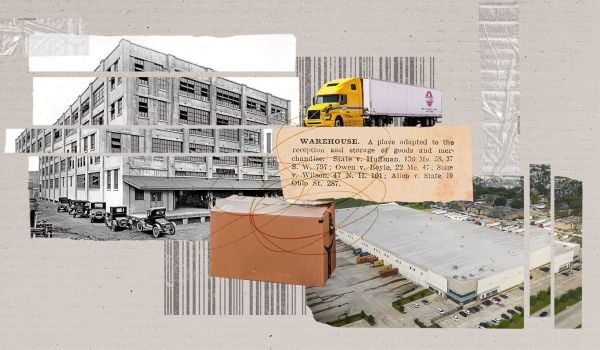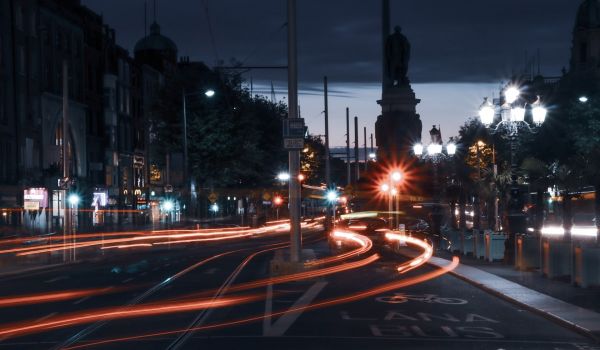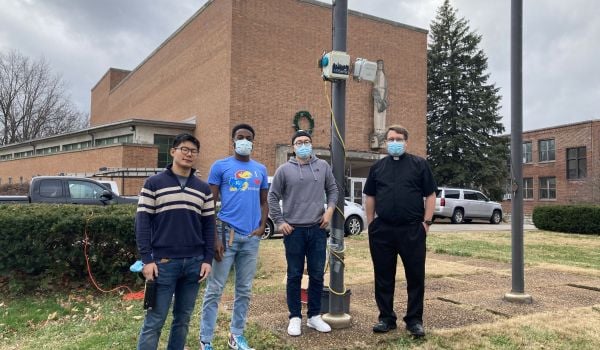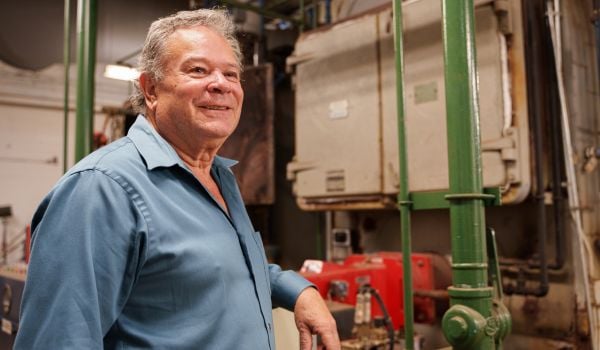Big industry doesn’t scare Bill White, the mayor of Houston. In the few years since he’s been in office, he has fought wealthy local oil refineries and chemical plants on emissions. Even Hurricane Ike’s wrath could not stop White. Late Sept. 2008, he put Lyondell Chemical on front street for their benzene emissions.
White filed a 26-page petition asking the Texas Commission on Environmental Quality to require that Lyondell publicly defend its benzene levels. He wants the commission to grant a hearing in front of a judge before the company is granted a new chemical release permit.
Lyondell, which operates along the city’s Ship Channel, is requesting to renew its Flexible Permit, a Texas-based program which allows plants and refineries to wrap up several facilities into one permit. Lyondell is the city’s largest refinery and the nation’s biggest emitter of cancer-causing benzene.
The mayor hopes the hearing will prompt Texas to establish a benchmark for benzene; currently the state has no legal limit for the chemical.
“If the company believes that it’s just fine to put tons and tons of benzene in the air,” White told the Houston Chronicle, “then we would like to hear what scientific evidence they have that benzene is good for you.”
In 2006, the mayor’s Task Force on Reducing Air Quality Health Risks identified more than 180 hazardous air pollutants, or HAPs, with benzene near the top of the list. He’s since been doing everything in his power to get industry to reduce air toxins, including proposing to use city nuisance ordinances to punish companies for failing to reduce benzene emissions.
One of the most common air contaminants found in a petrochemical refinery are hydrocarbons, also known as VOCS (volatile organic compounds). Benzene is both a VOC and a HAP.
Benzene is a liquid chemical widely used in the production of plastics, resins, nylons and synthetic fibers. It’s also used to make some pesticides, lubricants, rubbers, dyes, detergents and drugs. But because it’s a known carcinogen, its addition to gasoline is now limited.
Lyondell spokesman David Harpole insists the company’s Flexible Permit application will result in a 23 percent cut in overall emissions and 41 percent reduction in benzene discharges. The permit “gives us the flexibility to manage a business that we’re experts in,” Harpole told Houston ABC affiliate’s Eyewitness News.
City officials are hardly convinced of the numbers provided by Harpole. The Mayor told ABC that he is open to a lawsuit if a hearing is not granted by the state.
Matthew Tejada, director of Galveston-Houston Association for Smog Prevention (GHASP), supports the mayor’s petition. He recently told Next American City, “There is absolutely no way to enforce an emissions limit on a Flexible Permit” explaining that, “the program is so poorly written that…there is zero control, zero oversight.”
For years, the Association and a number of other nonprofits have been criticizing Texas’ air permitting program and specifically the Flexible Permit program. “At its root, the Texas air permitting program is broken. The state has been letting a number of industries get away with things through their permits that are in direct contradiction with federal law.”
The EPA has not granted federal approval of the permit; they have however asked the state to make revisions. Tejada believes they should instead require that Texas stop using these permits. “The EPA has not aggressively executed a really important part of their mission, which is public health, by holding state up to federal law when state laws don’t come into compliance.”
Tejada says White has been a great partner to his and other local organizations in many instances and would like to think that White has been tough on industry “in some small part because of our research and advocacy in connection to the many fundamental problems in Texas’ air permitting program.”
In August, the Association, along with the Environmental Defense Fund and Environmental Integrity Project filed a petition with the EPA regarding many of the same permitting issues contained in the Mayor’s challenge to Lyondell Chemical.
Just a few months prior to his petition for the Lyondell hearing, White also filed a petition with the EPA asking them to change the way they calculate harmful emissions from petroleum refineries and chemical manufacturing plants.
His issue with the calculations is that they rely heavily on formulas and equations known as “emission factors,” (a system which even the EPA considers flawed) estimates which can be drastically lower than accurate numbers. He cites a scientific study placing refinery and plant emissions at up to 100 times EPA estimates and is calling for more direct observation by the EPA of the industries.
The study cited by White was conducted in 2000. It was the first major air quality study in the Houston-Galveston region using infrared cameras and aircraft-mounted lasers called LIDAR, which found VOC emissions up to 100 times higher than industry reports.
Tejada, as well, is hyper-aware that emissions factors are hugely inaccurate. Actual measured emissions, he explains, are anywhere from 3 to 100 times greater than emissions factors, with the average best guess at 10 and 20 times greater. “In other words, we should take industry numbers and tack another zero onto the end and then double that number. That would give us a clearer picture of the amount of stuff that is in our air.”
As Mayor White awaits the EPA to review his petition, he plans to ensure that Houston is getting accurate emissions data by having the city conduct its own testing of refineries and plants along the Ship Channel, home to the largest petrochemical complex in the country. He obtained a federal grant for $650,000 to conduct the testing.
With funds from the grant, the city will measure emissions with a DIAL, a differential absorption lidar. The technology, considered one of the most accurate emissions inspecting tools on the planet, has been in use in Europe for two decades.
It was only last year that the U.S. began to employ DIAL when the TCEQ became the first U.S. regulatory agency to conduct a study of Texas City, Texas companies using the technology. A full report is not expected until some time this fall.

Hamida Kinge has written about everything from food security to ocean acidification to luxury cell phones. She was a 2009 fellow of the Scripps Howard Institute on the Environment and a 2008/09 reporting fellow of the Metcalf Institute for Marine & Environmental Reporting. She has contributed to Next American City, Grist, Philadelphia City Paper and U.R.B. domestically as well as Europe-based magazines Essential Macau and Straight No Chaser. For the past year, she has been teaching English as a foreign language to international students and business professionals. Hamida has also been a volunteer English tutor for the International Center in New York.















